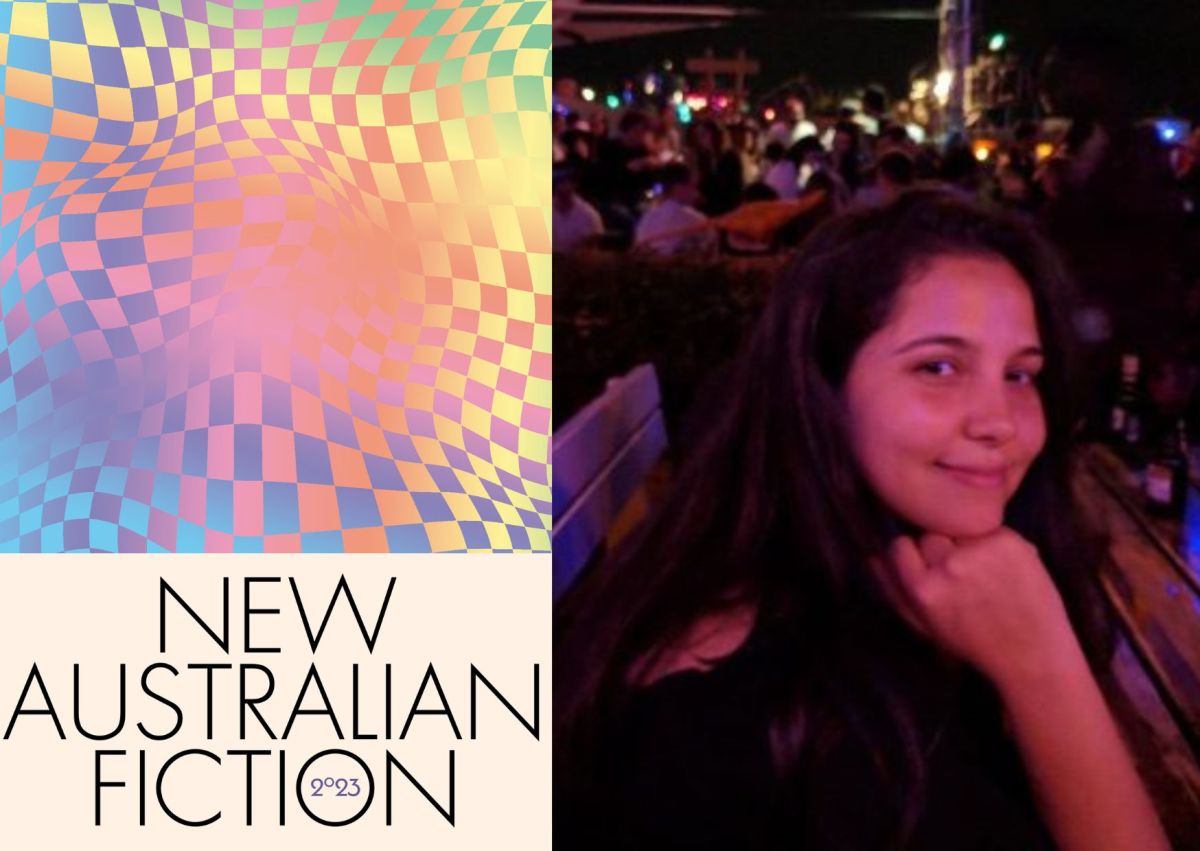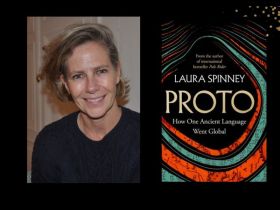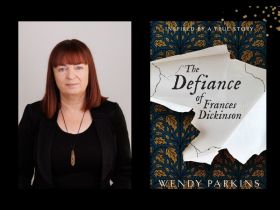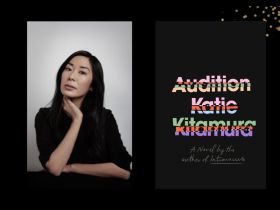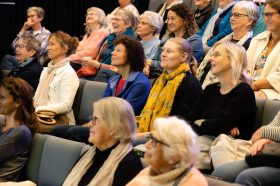What does it mean to have a voice? Or to lose your voice? How do people treat you when you have no voice? The opening story of New Australian Fiction couldn’t pinpoint our country’s current political moment more precisely, yet there is no mention of First Nations peoples or the referendum. Instead, Eleanor Kirk explores these questions obliquely in her story, ‘The Next Dame Joan, Probably’, through an opera singer who loses her voice in Germany.
The strongest stories in this fifth annual collection from Kill Your Darlings use similar symbolic stand-ins for elusive emotions – sometimes called “objective correlatives”. Shaeden Berry’s ‘Lake Monsters’ embeds the hidden violence of a rural community in a fictional lake monster. Julie Koh’s playful ‘On the Road’ (yes, it’s a spoof on Kerouac) mocks the meaningless spiritual longings of privileged road-trippers. In Hope Loveday’s ‘Souvenirs’, lovers exchange a memory every time they have sex, losing a piece of their own history while being colonised by a piece of the other’s. And in Kalem Murray’s ‘A Return to Form’, a devouring hole down a dirty alley exerts a suicidal pull on a city’s inhabitants.
There are only a few direct references to current events (mercifully, the pandemic makes its only appearance in the introduction to the collection), and the “new” in this anthology is found more in bold technical experiments in form and point of view. Chris Flynn’s ‘Snake Island’ explores the war in Ukraine through the eyes of cats. André Dao draws on the techniques of autofiction, literary criticism and history for ‘Reading Proust by the Beach’. Madeleine Rebbechi tells her story of exploited workers in a doll factory, ‘Dip’, in the second person, addressing the reader directly as “you”.
The poetry in these stories is often in their allusions. They reverberate beyond their mostly simple and sturdy prose to capture something ephemeral about our contemporary experience. Many of the characters we find here are on quests, searching for things just out of reach, from a secret sexuality, to a lost mother, to a total merging with loved ones.
So much for the “new”. I was also looking for the “Australian” in this collection of New Australian Fiction, and I was interested to find this often appeared in our relationship to other places. Half of these stories are set (at least partially) outside Australia – we’re taken from Vũng Tàu to the Black Sea, Beirut to Gelsenkirchen, Jogjakarta to Pittsburg, as though our sense of identity relies on comparing and contrasting ourselves with other places. And those other places are different for each of us. A telling moment comes when the narrator in Daniel Alwan’s ‘Hammam’, is talking to his Sydney media colleagues, a narrow demographic that is typically ‘white male “hipster” living in the inner city’. He tells them he’s transferring to London. ‘Back to the “motherland”, they said with uniform glee. It was the first time I’d heard that expression.’
This collection comes from both established and emerging writers, but each story is fresh and boundary-pushing. They refuse to see Australia through the tired old lenses. Instead, these stories hook and hold something of how we’re just beginning to think about ourselves as Australians, though it may be years before we can drag that beast onto dry land.
New Australian Fiction 2023, edited by Suzy Garcia
Featuring: Daniel Alwan, Chris Ames, Shaeden Berry, André Dao, Chris Flynn, Natasha Hertanto, Eleanor Kirk, Julie Koh, Hope Loveday, Kalem Murray, Madeleine Rebbechi and Allee Richards
Publisher: Kill Your Darlings
ISBN: 97806454933
Format: B-format
Release date: 1 September 2023
RRP: $27.95
This review is published under the Amplify Collective, an initiative supported by The Walkley Foundation and made possible through funding from the Meta Australian News Fund.
